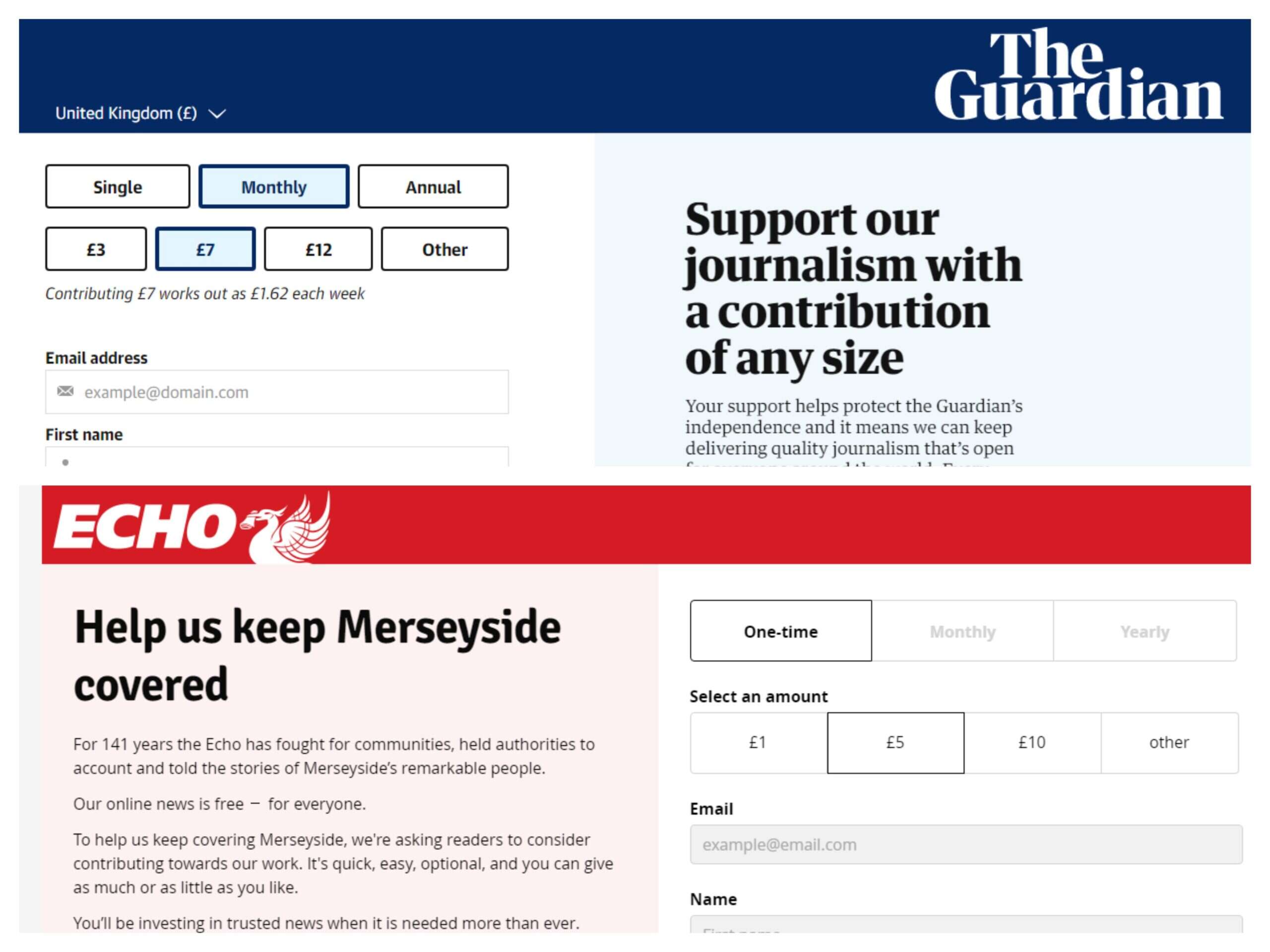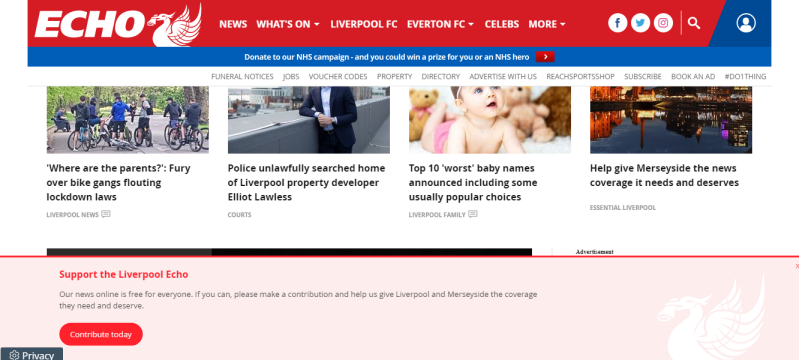
The Guardian’s reader revenues have grown at record rates since the coronavirus crisis began and one of the UK’s biggest regional dailies follows in its footsteps in asking for contributions.
Recurring payments are up by almost a quarter (23 per cent) on last year at the Guardian, which reached 821,000 recurring monthly supporters last month.
This figure includes 446,000 people either making recurring voluntary financial contributions of any size, or signing up as patrons to a special scheme which starts at £100 per month.
The number is up a fifth from 371,000 in March 2019.
Digital subscriptions for the Guardian’s tablet editions and apps – now including the new one-edition daily app – grew by 39 per cent from 191,000 to 265,000.
Even print subscriptions to the Guardian, Observer and Guardian Weekly were up three per cent to reach a record high of 111,000.
Editor-in-chief Katharine Viner said: “Over the last 12 months the Guardian has provided independent, fact-based journalism to unprecedented numbers of readers.
“Readership and financial support from readers have grown at record rates during the past two months of the coronavirus.
“While the future is tough for news organisations, we are very grateful to Guardian readers around the world, who are helping us to ensure that high-quality news is accessible to everyone, not just those who can afford it.”
The Guardian also received 342,000 one-off contributions from readers in the 12 months to 31 March 2020, compared to 341,000 the year before.
The reader revenue growth has helped the Guardian reach its goal of financial sustainability for a second year in a row “despite the significant challenges presented by coronavirus”.
The Guardian was found to be doing the best job in covering coronavirus out of all print/digital news media (not including broadcasters) by a Reuters Institute for the Study of Journalism survey this week.
The publisher said it has seen an extra 50,000 recurring supporters sign up in April so far, with all types of reader revenues growing two to three times faster than normal as the coronavirus crisis continues.
The Guardian is one of a number of UK news publishers hitting online traffic records because of the pandemic, with the Financial Times also reporting digital subscriptions are “surging”.
But digital revenues are suffering nonetheless as fewer brands can afford to advertise and many of those who are have been stopping their adverts from appearing alongside coronavirus stories.
Regional publishers
The Liverpool Echo, one of the biggest regional titles owned by Mirror and Express publisher Reach, has today launched its own appeal for contributions for readers in a similar model to the Guardian.
The title is asking for payments of any size on a one-off, monthly or annual basis to help it continue covering Merseyside and invest in “trusted news when it is needed more than ever”.

Liverpool Echo appeal for financial support on its homepage
Echo editor-in-chief Ali Machray said: “The Echo has been covering Liverpool and Merseyside for 141 years.
“We have fought for our communities, held the authorities to account, campaigned on important issues and told the heartwarming, sometimes heartbreaking, stories of the remarkable people of this unique region.
“It’s no secret that our industry faces serious challenges – and at the same time, more people are reading us than ever before.
“Our intention behind this optional contribution request is to sustain great journalism – keep growing, keep improving, keep Liverpool moving forwards.”
A Reach spokesperson said there are no immediate plans to roll the payment feature out to its other websites, but that this will be assessed.
The company previously trialled a micro-paywall costing up to £1 per week on the website of the Huddersfield Examiner newspaper, but ended the experiment after five months in February.
Fellow regional publisher Archant has also begun asking readers for contributions since the coronavirus pandemic began.
Newsquest and JPI Media have both now introduced metered paywalls on a number of their biggest websites.
Email pged@pressgazette.co.uk to point out mistakes, provide story tips or send in a letter for publication on our "Letters Page" blog
